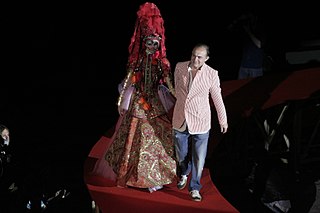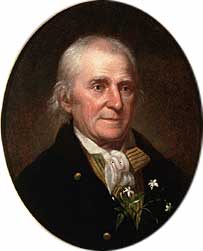A Quote by Riccardo Tisci
For me, creating the clothes of Givenchy is the way to make my tribe. It's related to religion, too, because it's people trying to find identity - the young generation is looking for tribes. You have the hip-hop tribes, the punk tribes, the rockers, you have the hipsters, the bourgeois ... The fact of the tribe is that it's like a religion. Punk is like a religion, because it's a belief.
Related Quotes
The tribe is whatever we believe it is. If we say the tribe is all the Little Ones in the forest, and all the trees, then that is what the tribe is. Even though some of the oldest trees here came from warriors of two different tribes, fallen in battle. We become one tribe because we say we're one tribe." Ender marveled at his mind, this small raman [member of another sentient species]. How few humans were able to grasp this idea, or let it extend beyond the narrow confines of their tribe, their family, their nation.
The case of Johnson v. M'Intosh is exactly why Congress can pass legislation as it did with the Rio Tinto land mine deal because Congress took the land from the tribes, ignores their sacred connections to it, their cultural connections and does whatever it wants with it. Congress terminated tribal status for more than 100 tribes. Basically said, you're not a tribe anymore and we're not going to pay attention to the treaties. The Supreme Court has held that when Congress breaches a treaty with an Indian tribe it's not judicially reviewable. It's called a political question.
One was a horrible case called Oliphant v. Suquamish Indian Tribe which denied tribes the right to criminally prosecute non-Indians who commit crimes on their reservations. That decision has had horrible consequences for law enforcement on Indian reservations. But in that opinion Justice William Rehnquist cites language from the 1830s to explain why whites didn't trust tribes to exercise criminal jurisdiction. They were savages.
Every person is a Hindu who regards and owns this Bharat Bhumi, this land from the Indus to the seas, as his Fatherland as well as Holyland, i.e. the land of the origin of his religion... Consequently the so-called aboriginal or hill tribes also are Hindus: because India is their Fatherland as well as their Holyland of whatever form of religion or worship they follow.







































